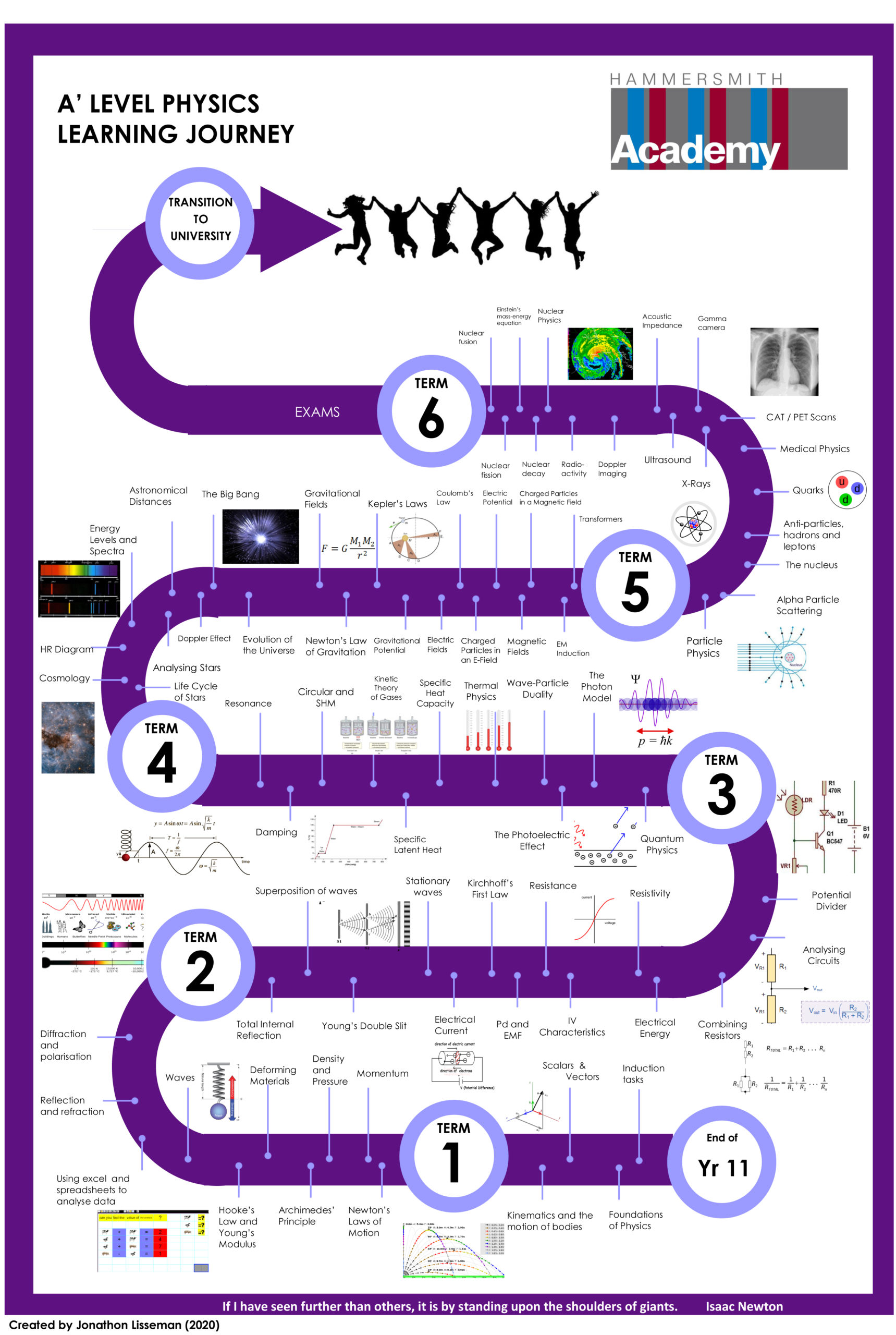Physics
Science stretches the limits of my imagination and creative thought, allowing me to appreciate the world around me, from the seemingly mundane to the astonishingly grand.
Mr Bridle (Head of Science)
Physics is the study of how our universe works, its rules and mechanics, and the scientific techniques which lie behind great discoveries.
Studying physics develops your understanding of core physics and gives you a range of subject-specific skills in areas such as astronomy, computational and experimental physics, materials, dynamics, electromagnetism and quantum mechanics.
This specification has been developed for students who wish to continue with a study of Physics after GCSE. The course will prepare students to progress into higher education, to follow courses in physics, engineering, one of the other sciences or related subjects, or to enter employment where a knowledge of physics would be useful.
While the teaching of practical skills may be integrated with the theoretical topics, they are assessed separately.
Exam Board: OCR (A) Specification
Entry Requirements: Eight or more GCSEs at grades 9-4 including a minimum grade 6 at GCSE in Physics or 6/6 in GCSE Combined Science or 5/5/6 in Triple Science (with a 6 in Physics).
Applicants must have a grade 6 in GCSE Mathematics, and grade 6 in GCSE English Language.
Skills Gained
- Problem solving – with a pragmatic and analytical approach
- Reasoning – constructing logical arguments and grasping complex problems
- Research and data analysis – undertaking research and applying analytical skills
- Numeracy – skills in using mathematics to find solutions to scientific problems, mathematical modelling and interpreting and presenting information graphically
- Practical skills – planning, executing and reporting experiments, using technical equipment and paying attention to detail
- Communication – conveying complex ideas and using technical language correctly, discussing ideas and taking on other viewpoints
- Teamworking – working together on group-based project work
- Time management and organisation – meeting project and research deadlines
- Information technology (IT) – including specialist software packages and some programming
Potential Careers
- Aerospace and defence
- Education
- Energy and renewable energy
- Engineering
- Health and medicine
- Instrumentation
- Manufacturing
- Meteorology and climate change
- Nanotechnology
- Oil and gas
- Science and telecommunications

